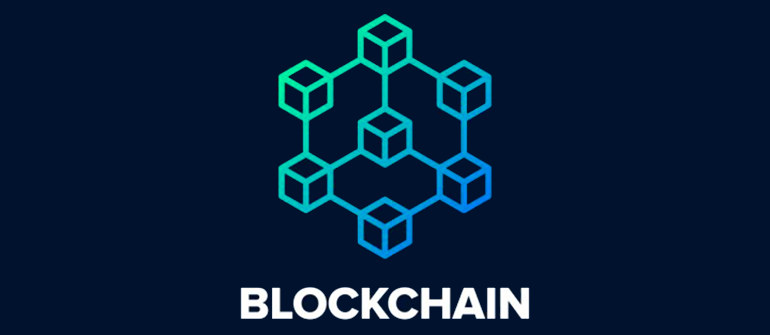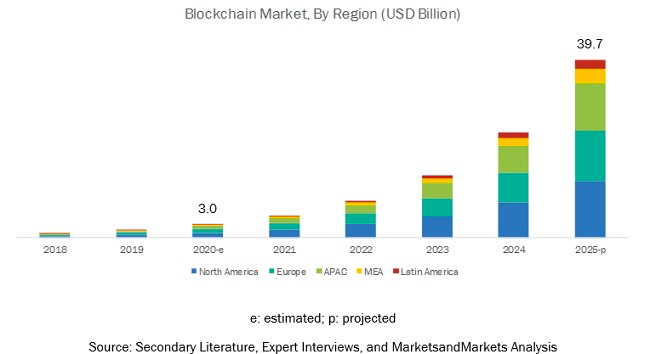The future of Security — Blockchain
By Sahil Singla on The Capital
What is Blockchain?
For a lot of people, blockchain means cryptocurrency or Bitcoin. And most of them do not understand Bitcoin either, it feels like the Dollar but with extra technical complexities involved. All the above facts are absolutely wrong!
Blockchain is a concept and Bitcoin is a currency built on the blockchain. Blockchain doesn’t in any way relate to Bitcoin, it has far wider applications.
Ok, so what is blockchain? As the name suggests, it is a chain of blocks, that’s it! And, then why is it called an emerging field if it’s that simple. It’s due to the features this chain of blocks provides. The most important one of them is it’s distributed nature. Let’s try to understand what the distributed nature implies. Consider an example of any service that you are using, lets consider Google search for now. Whenever you search something, data gets sent to the servers and you can not even know what data has been sent, maybe they capture your location with every search, maybe they don’t. You entirely trust Google to not misuse your data. This is called the centralized nature where you need to trust someone with the very private details. If an application is decentralized, all data is present with you, you can control what data can be accessed by any party other than you.

One of the prime examples of a truly distributed systems is BitTorrent. It stores chunks of data on multiple computers that can not stitch the whole file but whenever one downloads, it fetches pieces from multiple sources and completes the entire file on your system. If you exclusively have a part of a file and you are not seeding, there’s no way someone will be able to read it from you. Oh, what a great technology, right?
Ummm….
One of the key features of blockchain is also its immutability. Immutability refers to the concept of never changing the data once it has been registered. This could be a positive as well as a negative concept based on the context. Let’s take the example of financial transactions. Suppose, one day your bank loses all the data. You will have no way to know the balance you had because remember it’s not hard physical cash that you can count but just a digital number which if recorded on a poorly built system, can be gone in no time. Blockchain systems rule these possibilities out of the frame by keeping so many copies of the data that no single entity could keep. And don’t worry, no one can still read your data without your permission, not even your bank.
But this means that everything is unforgettable. Think about social media, what you shared as a teenager can never be deleted. Scary, yeah…. but remember you still have the entire control. You can restrict who sees your data, it’s just you can never delete it.
Is there really a need for blockchain?
Not a lot of business ideas in this decade have gained momentum that actually needs a distributed system. The entire society of humans has been established on trust and hence, the same centralized models are still pretty good. But in recent times, multiple major corporations have faltered and the trust levels of the users have taken a toll. This has forced blockchain solutions to become over a $ 4B market estimated to explode to $ 40B by 2025.

Let’s look at some use cases due to which this estimate has been made.
Financial markets have already started exploiting blockchain and hence, I would not cover it here.
Healthcare records:
There is a steep increase in the number of blockchain solutions in the Healthcare sector. Healthcare is a perfect use case for blockchain. Just think about multiple parties interacting with each other who do not trust each other. When you move from one city to another, you carry your doctor’s prescriptions to the new city, just to show to the new doctor. Now, either there comes an application that gets all doctors on board and they have all your data or there is a blockchain solution where anyone you allow can access your previous medical records. The second one definitely seems to be a better prospect.
Elections:
Online voting is also a potential use case for blockchain. The trust in the blockchain is increasing with people becoming more aware of tech. Voting is one of the last tasks we have to do physically because again it involves multiple entities that can not trust each other. With everything going online, voting also would be forced to. This should increase participation as well as rule out possibilities of any fraud or political parties claiming the wrong calculation of votes.
Irrespective of the criticism that blockchain has received, the tech industry has been really enthusiastic about it. And, with people getting more and more careful about what data to share, blockchain might just be the technology for the future. It will be something that will be forced upon you whether you like it or not. And, believe me, it would serve you much better than anything now.
https://twitter.com/thecapital_io
The future of Security — Blockchain was originally published in The Capital on Medium, where people are continuing the conversation by highlighting and responding to this story.
from The Capital - Medium https://ift.tt/3gk3XM0
0 Comments